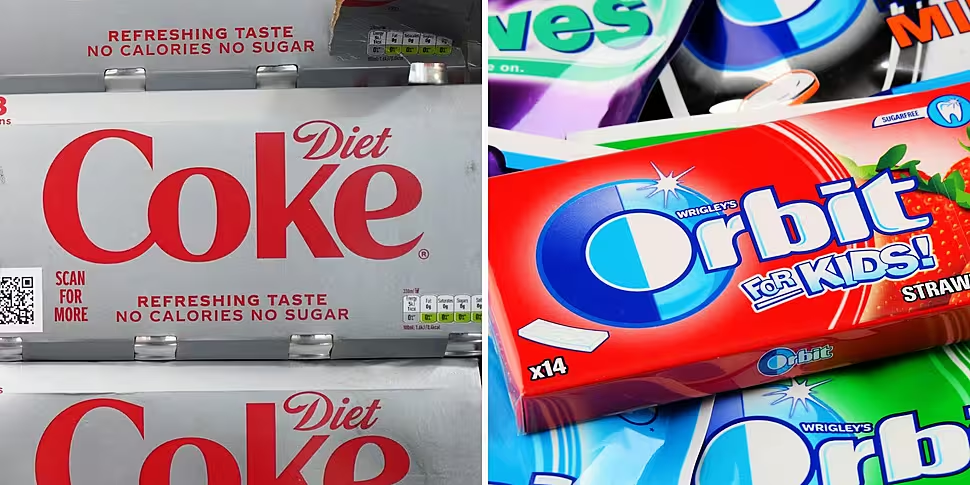People should take WHO advice onboard around sweeteners and potential cancer risks as part of a balanced diet.
That's according to UCD Associate Professor of Medicine, Professor Donal O’Shea, who was speaking as a sweetener is set to be declared as a potential cancer risk.
Reports say aspartame is to be listed as "possibly carcinogenic to humans" for the first time by the International Agency for Research on Cancer (IARC) - the World Health Organisation's cancer research arm.
Aspartame is found in several products - including Diet Coke, Fanta Zero, Wrigley's Extra chewing gum and some artificial sweeteners used in tea and coffee.
Prof O'Shea told The Pat Kenny Show the warning follows years of concern about sweeteners and additives.
"They're not saying it is true, but they are flagging it now for the first time officially as a possible carcinogen," he said.
"In some ways there's nothing new in this; there have been concerns for some time about the various additives that go into food when you reformulate.
"Artificial sweeteners, and this is the most commonly used artificial sweetener... this one has been kind of high the list.
"If you look at the growth of this sweetener, and you look at the growth in certain cancers, there are parallel lines".
'Particular concern'
Prof O'Shea described such findings as "guilt by association, without absolute cause being identified."
However he said these sweeteners are recommended for use by many institutions.
"We would advise people in our clinic who drink large volumes of sugar-sweetened drinks to switch to the ones with artificial sweeteners," he said.
"We've been giving that advice for a number of years.
"[Flavoured] water and milk for kids are definitely the two go-to options.
"The pattern of consumption of both diet drinks and sugar-sweetened drinks by our kids is a particular concern.
"You need to take the WHO's advice onboard in just how you think about it – a balanced diet".
'Advertising'
Prof O'Shea said consumption is driven by advertising.
"If you're two hours on TikTok... you'll get 40 ads for ultra-processed foods that contain lots of additives - you won't see an ad for a vegetable, you won't see an ad for a banana.
"Advertising drives consumption; I'm concerned at all of the additives that are included in the ultra-processed foods.
"We just don't know what a lot of them do.
"If you think about the shelf life of the ultra-processed food and drinks that last for months, that has to have so much in it to make it last for months that you would be better off not having it," he added.
Listen back here:









